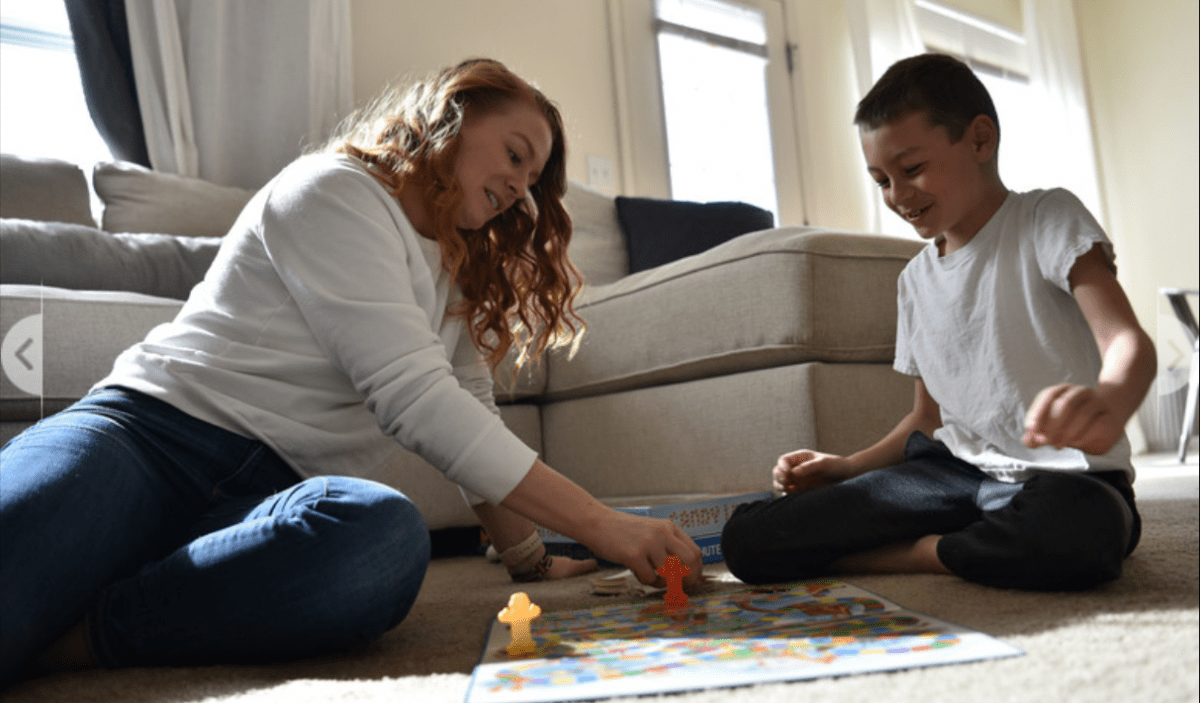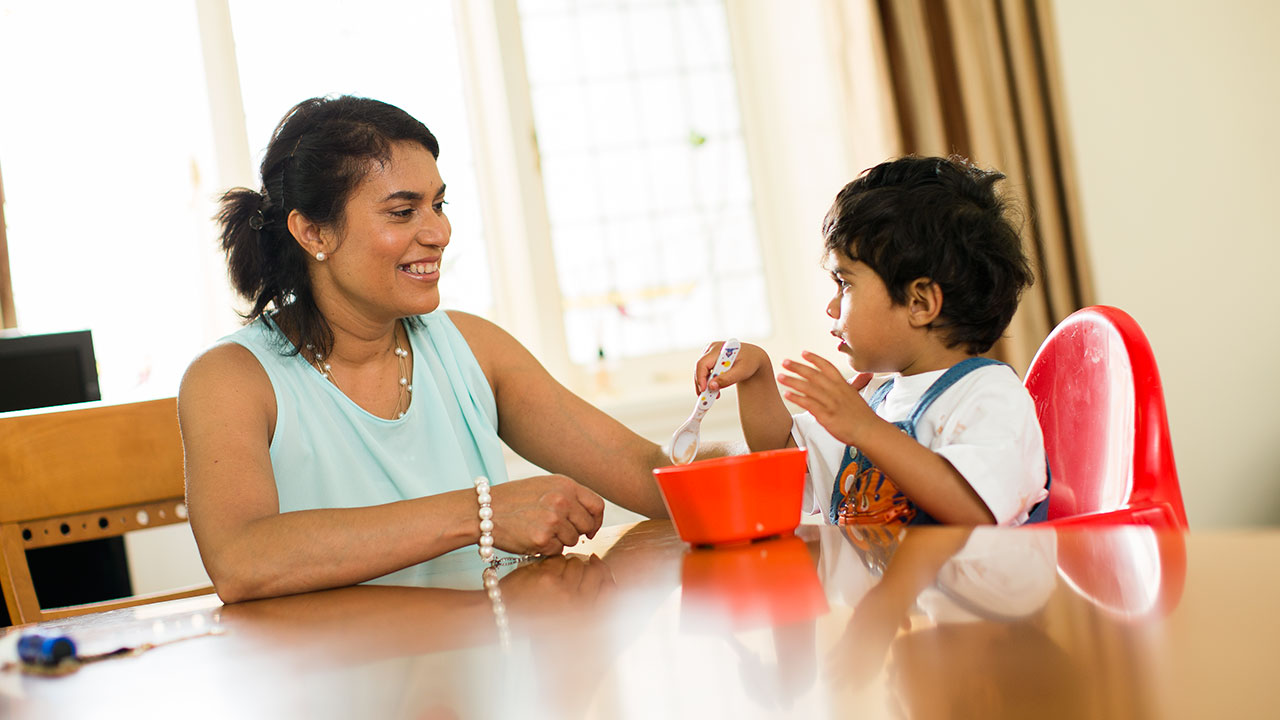Shaping Development: Parent-Child Communication Strategies
To guide your child’s development, use effective parent-child communication. Build trust, connection, respect, and healthy dialogue. Actively listen by reflecting, showing empathy, and maintaining eye contact. Set clear expectations, boundaries, and promote open dialogue to strengthen your bond. Empathize with your child’s feelings and resolve conflicts constructively. Reinforce positive behaviors consistently to nurture a strong relationship. These strategies shape a positive developmental path for your child.
Key Takeaways
- Active listening fosters trust and understanding in parent-child communication.
- Setting clear expectations promotes respect and boundaries.
- Encouraging open dialogue strengthens family bonds and communication skills.
- Empathy and validation of feelings enhance relationships and effective communication.
- Constructive conflict resolution models teach problem-solving and improve relationships.
Importance of Parent-Child Communication

Effective parent-child communication serves as the cornerstone for building strong and resilient family relationships. Trust building is an essential aspect of this communication, as it fosters an environment where children feel safe to express themselves openly. By establishing trust, parents create an emotional connection that allows for deeper understanding and support.
Mutual respect is another key component of effective parent-child communication. When parents and children treat each other with respect, it sets a positive tone for interactions and encourages healthy dialogue. This respectful communication paves the way for meaningful exchanges that strengthen the parent-child bond.
Furthermore, effective communication plays an important role in ensuring that both parties feel heard and understood. By actively listening and engaging in constructive conversations, parents can address issues, provide guidance, and offer comfort when needed. This open line of communication builds a solid foundation for nurturing relationships based on empathy and understanding.
Active Listening Techniques

As you consider the importance of parent-child communication, reflecting on the benefits of active listening techniques can greatly enhance your interactions with your child.
By practicing reflective listening, you can show empathy and create a safe space for open communication.
Empathetic responses foster understanding and strengthen the bond between you and your child.
Reflective Listening Benefits
Engaging in reflective listening can greatly enhance the quality of your parent-child communication interactions. By actively listening and reflecting on what your child is expressing, you create a space for them to feel truly heard and understood. This practice goes beyond just hearing their words; it involves empathy and a genuine effort to comprehend their feelings and perspectives.
Research has shown that employing reflective listening leads to improved relationships between parents and children. When you demonstrate that you’re attuned to your child’s emotions and thoughts, it fosters a sense of trust and openness. Effective communication flourishes in an environment where both parties feel valued and respected.
Moreover, reflective listening helps in avoiding misunderstandings and conflicts. By paraphrasing your child’s words and reflecting their emotions back to them, you clarify any potential misinterpretations and make sure that you’re on the same page. This proactive approach strengthens the bond between you and your child, paving the way for more meaningful and harmonious interactions.
Empathetic Responses in Communication
To further enhance your parent-child communication, incorporating empathetic responses through active listening techniques can deepen the connection and understanding between you and your child.
Empathy practices involve actively listening to your child’s thoughts and emotions without judgment, showing that you understand and care about their feelings. Communication techniques such as paraphrasing what your child says, reflecting their emotions back to them, and asking open-ended questions can help you better grasp their perspective.
Understanding emotions is essential in building connections with your child, as it fosters trust and encourages them to express themselves openly.
Setting Clear Expectations

When establishing clear expectations in parent-child communication, it’s essential to provide specific guidelines and boundaries to foster mutual understanding and respect. Establishing boundaries helps children understand the limits of acceptable behavior, while defining guidelines gives them a roadmap for expected actions.
Research suggests that children thrive in environments where expectations are clearly communicated and consistently reinforced.
Setting clear expectations also aids in building trust between parents and children. When expectations are explicit, children are more likely to feel secure and confident in their interactions. This security forms the foundation for open and honest communication.
By establishing boundaries and guidelines, parents can create a framework for constructive dialogue that promotes emotional growth and development in children.
Remember that setting clear expectations isn’t about control but about creating a supportive and nurturing environment. It allows children to learn responsibility, self-discipline, and accountability.
Encouraging Open Dialogue
To foster open dialogue with your child, focus on honing your active listening skills. This involves not just hearing but truly understanding their perspective.
Setting clear boundaries is essential for creating a safe space where your child feels comfortable expressing their thoughts and emotions.
Empowering your child’s voice by validating their feelings and opinions can strengthen your bond and encourage honest communication.
Active Listening Skills
How can active listening skills enhance parent-child communication and promote open dialogue within the family dynamic?
Listening attentively and responding empathetically are key components of active listening. When you truly listen to your child, you show them that their thoughts and feelings are valued, which in turn builds trust and deepens connections between you.
Research indicates that parents who practice active listening tend to have closer relationships with their children. By actively engaging in conversations, you create a safe space where your child feels comfortable expressing themselves openly. This not only fosters a deeper understanding of your child’s perspective but also encourages them to communicate more freely.
When you actively listen to your child without judgment, you validate their emotions and thoughts, fostering a sense of mutual respect. This validation can lead to improved problem-solving skills and conflict resolution within the family. By honing your active listening skills, you pave the way for more meaningful and effective parent-child communication.
Setting Clear Boundaries
Establishing clear boundaries within your family dynamic is vital for promoting open dialogue and fostering healthy communication between parents and children. By setting limits and enforcing rules, you create a structured environment where expectations are clear, leading to better understanding and respect. Research indicates that children raised in households with clearly defined boundaries tend to have higher self-esteem and exhibit improved decision-making skills.
When establishing limits, it’s important to involve your child in the process. Encourage open discussions about why certain rules are in place and listen to their perspectives. This collaborative approach not only helps children understand the reasoning behind the boundaries but also empowers them to express their thoughts and feelings freely.
Enforcing rules consistently is key to maintaining the integrity of the boundaries you have set. Be firm yet compassionate, providing guidance and support as your child learns to navigate within these limits. Remember, setting clear boundaries isn’t about control but about creating a safe and nurturing environment for your child to thrive.
Empowering Child’s Voice
Encouraging open dialogue with your child is a fundamental aspect of empowering their voice within the family dynamic. Child empowerment hinges on fostering an environment where your child feels comfortable expressing their thoughts, emotions, and opinions. To support autonomy and nurture your child’s sense of self, communication techniques play a pivotal role.
One effective strategy is active listening. This involves giving your child your full attention, maintaining eye contact, and responding thoughtfully to what they say. By actively listening, you show your child that their voice matters and is valued within the family unit.
Additionally, encouraging open dialogue creates a space for your child to develop essential communication skills that will serve them well throughout their lives.
Empowering your child’s voice through open dialogue isn’t only beneficial for their individual growth but also strengthens the parent-child relationship. By incorporating listening skills and supporting autonomy, you lay the groundwork for a healthy and communicative family dynamic.
Embracing Empathy and Understanding

To improve parent-child communication, fostering empathy and understanding is essential for building strong relationships and promoting mutual respect. Empathy involves actively listening to your child, acknowledging their feelings, and responding with compassion. When your child expresses emotions, such as frustration or sadness, offering empathetic responses can help them feel understood and valued.
Research shows that understanding emotions is a key component of effective communication within families. By recognizing and validating your child’s feelings, you create a safe space for open dialogue and emotional expression. This not only strengthens your bond but also teaches your child important skills for managing their emotions in the future.
Encouraging empathy and understanding in parent-child interactions sets a positive example for healthy communication and conflict resolution. By demonstrating empathy towards your child, you teach them how to empathize with others and navigate complex emotional situations.
Ultimately, embracing empathy and understanding paves the way for meaningful connections and a supportive family dynamic.
Managing Conflict Constructively
To navigate conflicts effectively in parent-child relationships, it’s important to approach disagreements with a focus on constructive resolution rather than escalating tensions. Conflict resolution within the family dynamic is vital for maintaining healthy communication and fostering positive relationships.
When conflicts arise, it’s important to practice active listening, where both parent and child feel heard and understood. Encouraging open dialogue allows for the expression of differing opinions without judgment, creating a safe space for honest communication.
Research suggests that constructive conflict resolution models, such as compromise and problem-solving strategies, can greatly enhance parent-child relationships. By teaching children how to manage conflicts in a healthy manner, parents empower them with essential life skills that promote emotional intelligence and resilience.
Fostering Positive Reinforcement

Positive reinforcement plays an essential role in shaping desirable behaviors and strengthening the parent-child bond. By providing positive reinforcement, you can effectively communicate with your child to encourage behaviors you want to see more of. Research shows that positive reinforcement is a powerful tool in shaping a child’s development and fostering a healthy relationship between parents and children.
Effective communication is key when using positive reinforcement. Clearly stating what behavior you’re reinforcing and why it’s beneficial helps your child understand expectations. For example, praising your child for sharing a toy because it shows kindness and consideration towards others reinforces the value of empathy.
Consistency is also critical in fostering positive reinforcement. By consistently acknowledging and rewarding positive behaviors, you reinforce the message that these behaviors are desirable. This consistency helps your child learn and internalize the values you’re promoting, leading to long-term positive outcomes.
Frequently Asked Questions
How Can Parents Address Communication Barriers With Their Child?
To address communication barriers with your child, practice active listening by giving full attention, showing understanding, and asking open-ended questions to encourage dialogue. This approach fosters trust and understanding in your relationship.
What Are Some Creative Ways to Encourage Dialogue With Teenagers?
To encourage dialogue with teenagers, try role playing scenarios to spark discussions on sensitive topics. Use creative writing prompts to explore feelings and opinions. These methods can foster open communication and deepen your connection with your teen.
Can Parents Use Positive Reinforcement Without Spoiling Their Child?
When it comes to parenting, you can strike a balance between setting boundaries and rewarding behavior. By acknowledging positive actions, you encourage growth without spoiling your child. Consistent reinforcement fosters a healthy parent-child relationship.
How to Handle Sensitive Topics During Parent-Child Discussions?
When discussing sensitive topics with your child, setting boundaries and fostering empathy is key. Building rapport and managing emotions together can create a safe space for open communication. Keep the dialogue honest and respectful.
Is It Possible to Rebuild Trust After a Major Conflict With a Child?
Rebuilding trust after a major conflict with your child is possible. Open and honest communication, active listening, and showing genuine care and understanding are essential in healing relationships. Patience and consistency play significant roles in this process.
Conclusion
To sum up, effective parent-child communication is essential for shaping a child’s development. By utilizing active listening, setting clear expectations, encouraging open dialogue, embracing empathy, managing conflict constructively, and offering positive reinforcement, parents can create a supportive and nurturing environment for their children to thrive.
Research shows that strong parent-child communication leads to improved emotional intelligence, problem-solving skills, and overall well-being. So, remember to communicate openly and empathetically with your child to foster a healthy and positive relationship.

Chad Adan Kace, a young dad from Vermont, shares his parenting journey with a touch of humor and lots of love. Father to a lively baby, he explores the joys and challenges of fatherhood through his stories.







